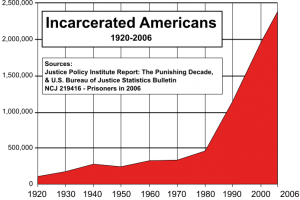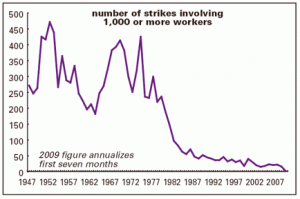Understand this, if you understand nothing else:
the system is working as intended.
It is true that a prosecutor can get a grand jury to indict a sandwich, and it is tempting to blame the prosecutor, Donovan. Certainly he made a decision, but he made the decision that the system wants: police are almost never prosecuted for assault or murder and on those rare occasions that they are, they almost always get off.
Donovan did what the legal system wanted him to do.
As for the police in question, well, they did what the legal system wants them to do, as well:
“Get away [garbled] … for what? Every time you see me, you want to mess with me. I’m tired of it. It stops today. Why would you…? Everyone standing here will tell you I didn’t do nothing. I did not sell nothing. Because every time you see me, you want to harass me. You want to stop me (garbled) Selling cigarettes. I’m minding my business, officer, I’m minding my business. Please just leave me alone. I told you the last time, please just leave me alone. please please, don’t touch me. Do not touch me.”
” I can’t breathe. I can’t breathe. I can’t breathe. I can’t breathe. I can’t breathe. I can’t breathe. I can’t breathe. I can’t breathe,” he said, as officers restrained him.
What you will hear defenders of the police say is “he was non-compliant.”
Non-compliant.
If a police officer tells you to do anything, you do it immediately. If you do not, anything that happens to you, up to and including death, is your problem.
The legal system exists, today, to ensure compliance.

From Wikipedia
American oligarchical society rests on people not effectively resisting. All gains now go to the top 10%, with the rest of society losing ground. Incarceration rates blossom in 1980, which is also the year that the oligarchical program is voted in and becomes official. (Trickle down economics can be understood no other way.)
Any part of the population which is inclined to resist, must be taught that it cannot resist. Get out millions to demonstrate against the Iraq war: it will not work. Protest against police killings of African Americans, it will not work.
Nothing you do will work.
You will comply, and you will learn that resistance is futile.
 The more outside the mainstream you are, the more you will learn it. African Americans, Latinos, poor whites (in that order.) Those who are fundamentally authoritarian, but somewhat opposed to the system (like the Bundy ranch) are treated more carefully (though the militia movement has its martyrs). But the fundamental lesson of life is to do what your lords and masters tell you to, and to not protest any law or order, no matter how nonsensical, trivial, or unjust it is.
The more outside the mainstream you are, the more you will learn it. African Americans, Latinos, poor whites (in that order.) Those who are fundamentally authoritarian, but somewhat opposed to the system (like the Bundy ranch) are treated more carefully (though the militia movement has its martyrs). But the fundamental lesson of life is to do what your lords and masters tell you to, and to not protest any law or order, no matter how nonsensical, trivial, or unjust it is.
Three strikes laws and the end of judicial discretion are about this. During the 80s the legal system was taken away from the judges and given to the prosecutors and the police. Almost all sentences are plea-bargained: the person with almost all the power in the system is the prosecutor. He or she is judge and jury for the vast majority of cases, and even when a case does go in front of a judge, the judge’s discretion is extremely limited. Your third crime stealing a bike? Too bad, we’re throwing the key away.
Compliance when given specific orders and learned hopelessness about protest or organizing are the aims. Ordinary citizens must understand that they cannot change the system if elites do not agree with the changes they want made. If they try, they will be arrested and receive a criminal sentence, meaning they can never again have a good job.
In this system the wolves or goats identify themselves. An injustice is committed, people protest and the most aggressive protestors (which doesn’t always mean violence) are arrested. Certainly the organizers are. Those people are, as a result, usually destroyed economically even if they aren’t locked up for years.
The system is doing what it is meant to do. It teaches compliance, it teaches hopelessness and it identifies those who will not obey laws that don’t make sense (marijuana possession, for example), or who will fight or organize against the system and then it destroys them economically and often psychologically through practices like solitary confinement and prison rape.
The system will not change until those who want it to change have the raw power to force it to change, because it does serve the interests of its masters by destroying or marginalizing anyone who is actually a danger to oligarchical control of the system.
Race is an effective tool in this system, dividing the lower classes (and almost everyone is lower class now) against each other. No matter how bad a poor white’s life is, well hey, he ain’t black. He or she can feel superior to someone, can have someone to kick down at.
And understand this, most of what police are paid in is social coin: the right to demand immediate obedience and fuck people up; the solidarity of the blue line; the feeling of belonging and power, is what makes the job worth having for (probably most) of the people who are now attracted to it.
Being a thug; having social sanction to be a thug, is enjoyable to a lot of people. Since that’s what cops get to do, those are the sort of people who tend to be attracted to the job. The police are the biggest toughest gang around, and belonging to them has most of the rewards of gang life, without the dangers of going to jail.
Working as intended



